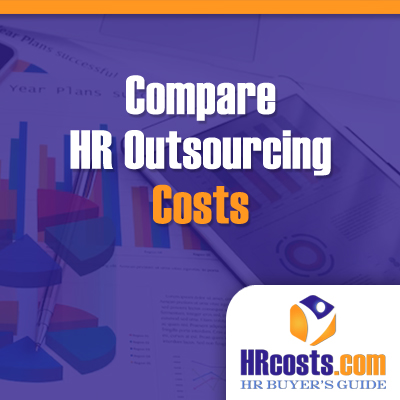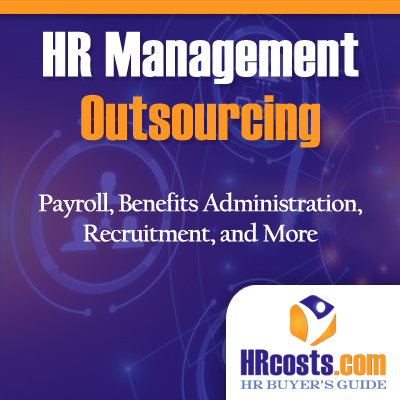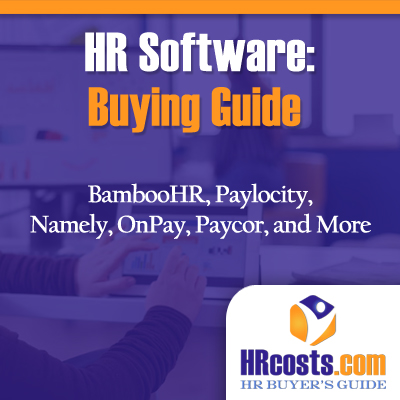
Do All Companies Need to Have HR Management?
Human Resources (HR) is a vital component of many businesses. It’s the sector that deals with recruitment, employee relations, performance management, and numerous other functions. However, the question arises: do all companies, irrespective of their size and niche, require HR management? Let’s delve deeper into this topic and see how essential HR management truly is for businesses of all scales.
1. Understanding HR Management
Before diving into its necessity, let’s understand what HR management encompasses. HR isn’t just about hiring and firing. It’s about managing human capital, ensuring employee satisfaction, training and development, benefits administration, ensuring compliance with employment laws, and handling disputes. A well-established HR department can be the backbone of a company, leading to improved performance and a better work environment.
2. HR Management for Large Corporations
For multinational companies and large corporations, having an HR department isn’t just beneficial; it’s indispensable. The sheer number of employees, the complexity of employment contracts, benefits management, and dispute resolutions make HR crucial. Moreover, large corporations need to adhere to various regulations and laws, which an HR department can effectively manage.
3. Small Businesses and Start-ups
For small businesses and start-ups, the necessity for a dedicated HR department isn’t as clear-cut. Often, many of these responsibilities are handled by the business owner or managers. However, as a business grows, the advantages of having an HR professional or team become more apparent. Even if it’s not a full-fledged department, having access to HR expertise can help streamline processes and prevent potential legal issues.

4. Digitized HR Solutions
With advancements in technology, many companies are turning to digital HR solutions. Software can now handle many tasks like payroll, benefits administration, and even some aspects of recruitment. This doesn’t eliminate the need for HR but can reduce the workload and need for a larger HR department, especially for medium-sized businesses.
5. The Case for No HR Department
There are indeed companies out there with no formal HR department. These are typically smaller businesses or start-ups where the employee count is low. In these cases, external consultants or part-time HR professionals might be brought in as needed. While this can work for some time, as the business grows and evolves, the need for dedicated HR personnel or resources usually becomes evident.
6. Legal Implications
One of the most compelling reasons to have HR expertise, either in-house or via consultation, is the legal aspect. Employment laws, benefits regulations, and other related rules can be complex, and non-compliance can result in hefty penalties. It’s not just about knowing these laws but also about adapting to changes and ensuring the company is always compliant.
7. The Bottom Line
While not every company might feel the need to have a dedicated HR department, the functions of HR are essential. As a business grows, the complexities related to managing human resources also expand. Even if a company doesn’t have an official HR department, it’s crucial to ensure that HR-related tasks are handled efficiently and effectively, either by trained staff, software solutions, or external consultants.

While the format and extent might vary, HR management in some form is beneficial for all businesses. Whether it’s for recruitment, training, dispute resolution, or legal compliance, HR plays a role that can’t be ignored in the contemporary business world.
The Risks of Not Having an HR Department
Navigating the complex waters of managing employees, complying with labor laws, and ensuring a positive workplace culture can be challenging. These tasks become even more daunting without an HR department. Here are some of the significant risks associated with not having a dedicated HR function:
Non-Compliance with Labor Laws
Labor and employment laws are complex and constantly evolving. An HR department’s role involves staying updated with these changes and ensuring that the company remains compliant. Without HR, there’s a heightened risk of overlooking crucial legal requirements, leading to potential lawsuits, fines, and damage to the company’s reputation.
Inefficient Recruitment Process
The hiring process is more than just selecting a candidate. It involves job postings, screening, interviews, background checks, and onboarding. Without an HR department, these processes can become disjointed, leading to hiring mismatches, wasted resources, and potential legal liabilities, especially if fair hiring practices aren’t followed.
Inadequate Employee Training & Development
HR departments often oversee or facilitate training programs. Without them, there might be no structured approach to employee development. This can lead to skill gaps, reduced productivity, and employees feeling undervalued or stagnant in their roles.
Poor Conflict Resolution
Workplace conflicts are inevitable. HR professionals are trained to mediate disputes, address grievances, and find amicable solutions. Without HR, unresolved conflicts can escalate, potentially leading to reduced morale, increased turnover, or even legal actions.
Lack of Defined Workplace Culture
HR plays a pivotal role in cultivating and maintaining a company’s culture. Without this department, there’s a risk that no clear culture gets established, or worse, a toxic environment emerges. Such scenarios can lead to high employee turnover, low job satisfaction, and poor company reviews, making future hiring more challenging.

Missed Benefits Administration
Managing employee benefits is more than just a payroll function. It requires regular audits, updates based on legislative changes, and communication with employees. An overlooked or mishandled benefit can lead to financial losses for both the company and its employees.
Loss of Confidential Data
HR departments handle a significant amount of confidential information, from personal data to salary details. Without proper HR protocols, there’s an increased risk of data breaches, loss of confidential data, and potential legal repercussions.
Overlooked Employee Well-being
Modern HR departments often take the lead in ensuring the mental and emotional well-being of employees, implementing programs, and providing resources for support. Without these initiatives, employee burnout, dissatisfaction, and mental health challenges might rise, affecting both individuals and the overall productivity of the company.
While smaller companies might initially manage without a dedicated HR department, as they grow, the challenges and risks highlighted above can become more pronounced. Investing in HR, be it through an in-house team, external consultants, or digital solutions, is not just about managing employees. It’s about safeguarding the company’s future, reputation, and overall well-being.
Identifying the Need for HR Management in Your Business
Business growth is exciting, but it also presents challenges, especially concerning human resources. Understanding when it’s time to implement or expand HR management within your organization can be pivotal. Here are some telltale signs that your business may benefit from a more structured HR approach:
Growing Employee Numbers
If your company is rapidly expanding its workforce, you’ll inevitably face complexities related to recruitment, onboarding, and training. An HR team or professional can streamline these processes, ensuring that new hires are smoothly integrated into the company.
Increased Administrative Tasks
Are you or your managers spending an inordinate amount of time on administrative tasks related to employees? If payroll, leave management, and benefits administration are becoming cumbersome, it’s a clear sign that you could use HR management.
Frequent Employee Conflicts
A surge in misunderstandings or conflicts between team members or departments might indicate a lack of clear communication channels or workplace protocols. HR can mediate in such situations, ensuring a harmonious work environment.
Lack of Clear Policies and Procedures
If your company doesn’t have an employee handbook or clear guidelines on workplace behavior, leave, or benefits, you’re in dire need of HR input. These documents set the tone for the company culture and ensure that all team members are on the same page.

Employee Turnover
Losing employees frequently can be costly and disruptive. If you’re experiencing high turnover rates, it could indicate underlying issues related to job satisfaction, company culture, or recruitment mismatches. An HR professional can help identify and address these challenges.
Difficulty in Recruitment
Struggling to attract the right talent? An HR department can help by refining job descriptions, streamlining the interview process, and ensuring that the company’s value proposition is appealing to potential hires.
Compliance Concerns
If you’re unsure about labor laws, tax obligations related to employees, or health and safety regulations, it’s a clear indicator that you need HR expertise. Non-compliance can result in penalties and harm your company’s reputation.
Feedback and Performance Management
A lack of regular performance reviews, feedback mechanisms, and career development opportunities can stunt your company’s growth and employee satisfaction. HR management introduces structured processes to handle these vital areas.
Employee Well-being and Engagement
If you’re uncertain about the morale or engagement levels of your team, it’s a sign that HR interventions might be beneficial. From organizing team-building activities to implementing wellness programs, HR plays a crucial role in ensuring employee satisfaction.
Need for Training and Development
Companies need to evolve, and so do their employees. If there’s no structure in place for continuous learning and development, you’re potentially missing out on maximizing your team’s potential.
Recognizing the need for HR management is the first step in ensuring that your company’s most valuable asset – its people – are well taken care of. Whether you’re a small start-up or a growing enterprise, the signs above can guide you in making informed decisions about strengthening your HR functions. Remember, effective HR management not only mitigates risks but also fosters a positive environment where both the business and its employees can thrive.

Considering Outsourced HR Management Companies
Human Resources (HR) is the backbone of any organization, ensuring that a company runs smoothly from a personnel perspective. However, as businesses grow and evolve, many are faced with a dilemma: should they build an in-house HR department, or should they consider outsourcing? The latter is an option that has grown in popularity, and for a good reason.
Why Outsourcing HR Management?
Flexibility and Scalability
Outsourcing HR allows businesses to be more flexible. As your company grows, the outsourced HR provider can scale its services accordingly. This scalability ensures that regardless of the business size, HR needs are consistently met.
Cost-Effective
Maintaining an in-house HR team can be expensive, especially for small to medium-sized enterprises. Outsourcing can offer cost savings as you only pay for the services you require. No need to invest in full-time salaries, benefits, and training if it’s not necessary.
Access to Expertise
Outsourced HR companies specialize in human resources. This means they stay up-to-date with the latest best practices, laws, and trends. Partnering with them ensures that your business benefits from this expertise without having to continuously train an in-house team.
Risk Management
Laws related to employment and labor are ever-evolving. Outsourced HR firms ensure that your company remains compliant, reducing the risk of lawsuits and penalties.
Efficiency
Outsourced HR providers often have the latest HR technology at their disposal, which can streamline processes like recruitment, payroll, and benefits management. This efficiency can lead to smoother operations and time savings.
Allows Focus on Core Activities
By entrusting HR tasks to an external provider, company leaders can focus on the core activities that drive revenue and business growth. It reduces the administrative burden and lets the leadership prioritize strategic initiatives.
Tailored Solutions
Outsourced HR companies typically offer tailored solutions, ensuring that the services align with the unique needs and goals of each business. This customization can lead to more effective HR strategies and better outcomes.
Employee Development
Many outsourced HR providers offer training and development programs. These programs can help improve employee skills and drive growth within the company.
Outsourcing HR management is a strategic decision that many companies are opting for. The benefits, from cost savings to access to expertise, make it a compelling choice for businesses of all sizes. While it may not be the right fit for every organization, it’s undoubtedly a viable option worth considering for those looking to optimize their HR functions.

The Benefits of Outsourced HR Management
Outsourcing HR management is not just a matter of convenience, but a strategic move that can bring a multitude of advantages to a business. As the demands on businesses grow, the need for efficient and professional human resource services becomes increasingly critical. Here are some of the top benefits of opting for outsourced HR solutions:
1. Cost Savings
A full-fledged, in-house HR department can be costly. Outsourcing eliminates overhead costs associated with hiring full-time employees, such as benefits, office space, and training. With outsourced HR, businesses only pay for the services they need.
2. Access to Expertise
Outsourced HR firms specialize solely in HR, meaning they are experts in their field. They stay updated with the latest trends, technologies, and regulatory changes, ensuring businesses get top-tier HR services without the need for continuous training or updates.
3. Enhanced Compliance
Labor laws, employment regulations, and compliance requirements change frequently. HR firms keep track of these changes and ensure that businesses are always compliant, mitigating the risks of lawsuits, fines, or other legal complications.
4. Flexibility
As businesses evolve, so do their HR needs. Outsourced HR provides flexibility by allowing companies to scale services up or down as needed. Whether it’s handling seasonal employee influxes or managing a period of rapid growth, outsourced HR can adapt quickly.

5. Focus on Core Business Operations
Outsourcing administrative HR tasks allows company leaders and teams to focus on their primary responsibilities. By removing the day-to-day burdens of HR, businesses can channel their energies into growth and innovation.
6. Advanced Technology Access
HR firms often utilize the latest HR technologies and platforms, from advanced payroll systems to state-of-the-art recruitment tools. Partnering with them gives businesses access to these tools without direct investment.
7. Reduction in Errors
HR tasks, especially payroll and benefits administration, can be complex and error-prone. Professional HR firms have systems in place to reduce mistakes, ensuring smooth operations and satisfied employees.
8. Employee Development and Training
Many HR outsourcing providers offer training programs or partnerships with training institutions. This provides employees with opportunities to advance their skills, which in turn can benefit the business.
9. Broader HR Service Offerings
Outsourced HR providers often offer a wider range of services than what might be feasible in-house. This could include everything from diversity and inclusion training to advanced analytics and forecasting.
10. Improved Employee Experience
With experts handling HR tasks, employee queries, concerns, and issues can be addressed promptly and professionally, leading to a better overall employee experience and, by extension, improved retention and morale.
Opting for outsourced HR management is more than just a cost-saving measure. It’s a strategic decision that can bolster a company’s growth, improve efficiency, and enhance the overall work environment. As the business landscape becomes more competitive, the advantages of outsourced HR become even more pronounced.
Unraveling the Broad Spectrum of HR Management Services
Every business, whether a budding startup or a sprawling multinational, hinges on its employees. But managing those employees and ensuring that the workplace remains harmonious and efficient isn’t always straightforward. This is where HR management companies step in. These organizations offer a vast array of services to assist companies in nurturing, managing, and retaining their workforce. But what exactly can you expect when you engage the services of an HR management company? Let’s delve into the extensive offerings they bring to the table.

Talent Acquisition and Onboarding
Finding the right talent is a challenge, but it’s just the tip of the iceberg. HR management companies streamline the process, ensuring that:
- Job descriptions attract the right candidates
- The interview process is thorough yet efficient
- New hires are properly onboarded and integrated into the company culture
Employee Training and Development
Continual learning is the key to a company’s growth. Here, HR firms:
- Assess the training needs of employees
- Develop tailor-made training programs
- Provide leadership development for emerging leaders
Compensation and Benefits Administration
Everyone works to get rewarded. HR management experts:
- Design competitive compensation structures
- Handle benefits administration
- Ensure all compensation-related regulations are adhered to
Employee Relations
Harmony in the workplace is pivotal. To ensure this, HR companies:
- Facilitate open channels of communication between staff and management
- Resolve conflicts through mediation
- Foster a positive workplace culture
Regulatory Compliance and Risk Management
The legal landscape of employment is intricate. HR management firms help by:
- Keeping abreast of labor laws and regulations
- Ensuring company-wide compliance
- Advising on risk management related to HR issues
Performance Management
For a company to move forward, its employees need regular feedback. HR services include:
- Designing performance appraisal systems
- Offering tools for continuous feedback
- Setting up frameworks for promotions and raises
Health, Safety, and Wellness Initiatives
A healthy employee is a happy employee. To promote this, HR companies:
- Develop health and safety protocols
- Offer wellness programs
- Ensure the work environment adheres to safety standards
Strategic HR Planning
Aligning HR strategy with business goals is crucial. HR firms assist by:
- Developing workforce strategies
- Projecting future hiring or scaling needs
- Providing insights on employee retention

HR management companies function as a Swiss Army knife for businesses, ensuring every facet of employee management is handled with professionalism and expertise. By leveraging their services, businesses can not only foster a positive work environment but also ensure they are set up for long-term success.
Decoding the Cost of Hiring an HR Management Company
When venturing into the realm of HR management services, one of the primary concerns for businesses is, quite understandably, the cost. The price of hiring an HR management company can vary significantly based on various factors. Let’s unpack the nuances of these costs, providing clarity for companies making this pivotal decision.
Size of the Company
The number of employees you have can directly influence the cost. Typically, HR management companies have pricing tiers based on the size of the company. A small startup with a lean team will likely pay less than a corporation with hundreds or thousands of employees.
Extent of Services Required
The breadth of services you choose to utilize will also play a significant role in determining the cost:
- Basic services such as payroll processing or employee record management might come at a lower price.
- More comprehensive services like talent acquisition, strategic HR planning, or leadership development programs will entail higher fees.
Customization and Specialization
If your company operates in a niche sector or requires tailored solutions, this can influence costs. Customized training programs, specialized compliance solutions, or industry-specific recruitment can come at a premium.
Contractual Agreements
The length and type of agreement you enter into can also influence the cost. Short-term contracts or those on a per-project basis might have a different rate structure compared to long-term or retainer-based agreements.
Location and Overheads
Where the HR management company is located and the associated overheads can factor into the pricing. Companies based in cities with a higher cost of living might charge more. Additionally, if the HR firm has to frequently visit your location or set up on-site services, this can add to the costs.

Reputation and Experience
Seasoned HR management firms with a stellar track record and established industry reputation might command higher fees than newer entrants in the market. The expertise and assurance they bring can often justify the premium.
To provide a general sense of the financial landscape:
- For smaller businesses with basic HR needs, monthly fees can range from $50 to $200 per employee.
- Mid-sized companies seeking a comprehensive suite of services might look at costs ranging from $200 to $1,000 per employee per month.
- Large corporations with extensive requirements, specialized solutions, and a vast employee base can see costs going upwards of $1,000 per employee per month.
While the cost of hiring an HR management company can vary, it’s essential to consider the value they bring. Beyond the tangible benefits of streamlined operations, they can play an instrumental role in nurturing company culture, ensuring compliance, and driving strategic growth. Investing in a robust HR management service can, in many ways, be seen as investing in the company’s future.
